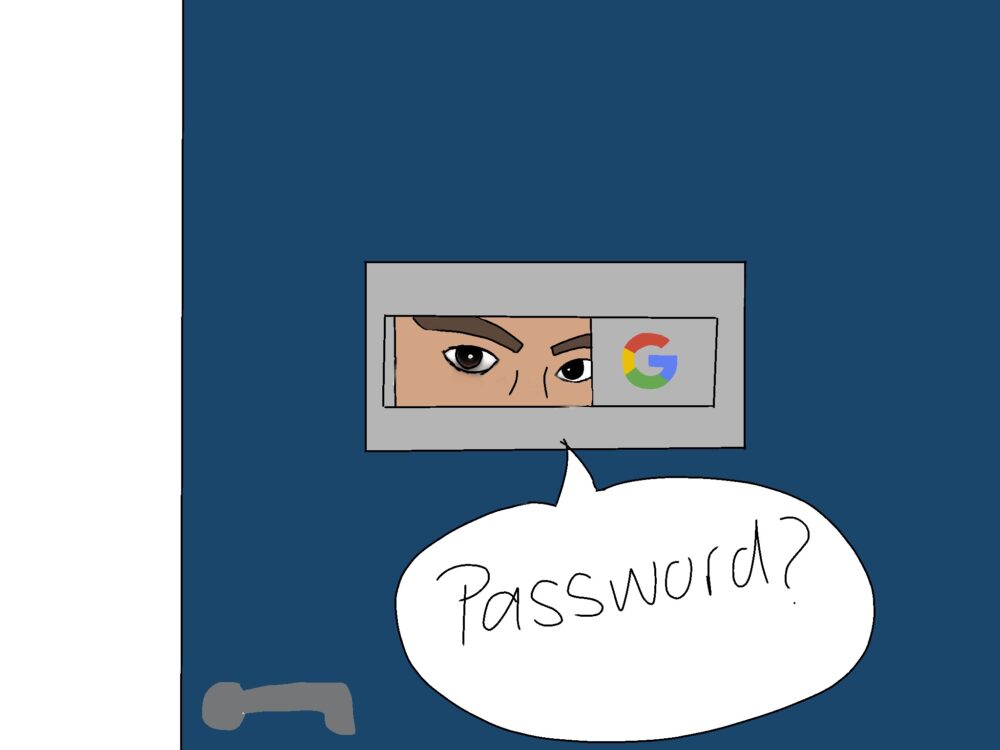
By Jessica Nguyen & Brian Pham
As people continue to use the Internet more, they share more information about themselves. While technological developments have come to benefit us more, the same can be said for how much it has harmed us. More risks come from being online as people develop more tactics to try to get your information, which is why it is important to protect yourself and stay safe online.
Common ways your information is leaked
1. A company you gave your information to was hacked
When you sign up to make an account for a website, you have to give personal information, such as your email, phone number and birthday. While most companies try to keep your information safe, hackers can still try to steal it.
In 2019, the tech company Canva was hacked, which resulted in hackers being able to access personal information such as emails of users. Having a company you use be hacked is especially harmful when you have the same password for multiple accounts. Some websites can tell you if your personal information has been leaked.
2. A company sold your information
Although most companies try to secure private information, some companies will sell your information. While in most cases the information is usually only sold to advertisers, some companies may even sell your information on the dark web.
3. You clicked on a strange link
Links you click on may be connected to viruses that can steal your information. This form of hacking is common on social media, where bots can copy and paste a website URL where ever they want. After someone clicks on it and logs in, this malware can give hackers access to your account and send the same website to your friends or take your information.
The internet is a dangerous place. Luckily, there are ways to help protect yourself online and ensure that you don’t get hacked.
Ways to protect your information
1. Secure your passwords
Although our generation is often thought of as experienced in using social media, many people use the same password for their logins, making it easy for hackers to gain access to all of your information through just one password. Instead, you can create unique passwords for each of your accounts. Using numbers and special characters (@, $, *) will make your passwords stronger and harder to breach.
You should also change your passwords often and use two-factor authentication to monitor your logins.
2. Keep your devices safe
When browsing online, it is easy to download malware or click on suspicious links. You should look for the lock in the URL address bar and check to make sure that you are accessing a trustworthy site. When you need that wireless connection, always use reliable, private Wi-Fi. While connected to public Wi-Fi, people can spy on what you are searching for and any information you input if your site doesn’t have the lock.
Installing antivirus software and enabling your firewall will add another layer of protection against malware and hackers by scanning them for and alerting you of any threats.
Another way to secure yourself online includes disconnecting from the internet or Bluetooth when you are not using a device. Having your wireless connection on allows hackers to access your devices without you knowing.
3. Stay safe on social media
Social media is an easy place for anyone to learn more about you. By keeping your accounts private, you can monitor who is following you and has access to your posts. Don’t accept requests from people you don’t know or from suspicious accounts and make sure to not share sensitive information like your birthday or age.
While these tips can help you stay safe from getting hacked, you may still be hacked. When this happens, it is important to change your passwords immediately. If you cannot get into your accounts, make sure you contact those companies as soon as possible. If your device has been hacked and isn’t useable, it is best to completely wipe your device storage. Stay safe, Barons!





